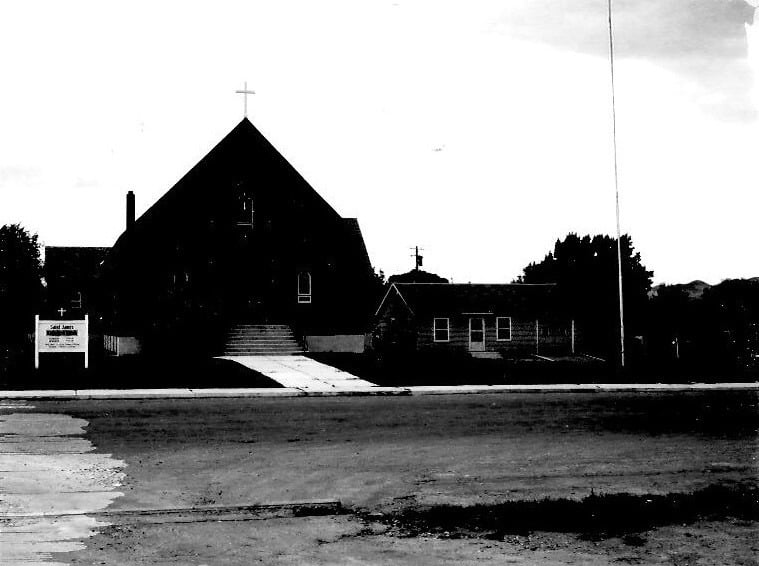-
Records Policy

Purpose
This policy is a branch of the information management policy and has been created to specifically address the management of records in the Diocese of Salt Lake City. The Diocese of Salt Lake City records policy explains to whom the policy apples, defines the ownership of records, and explains the roles and responsibilities in retaining records.Scope
This policy applies to all employees, vendors, third-party vendors, contractors in the Pastoral
Center, Chancery, Mount Calvary Cemetery, parishes and schools.Ownership of Records
All records created, received, used, maintained or preserved by Diocesan entity, employees, vendors, third-party vendors or contractors of the Diocese during the course of employment or in the transaction of Diocesan business are solely the property of the Diocese. No records shall be removed, destroyed, transferred, stored, transferred into another media format, e.g. digital
imaging, otherwise disposed of except in compliance with Diocesan policies governing properly established retention schedules and the procedures developed by the Office of
Archives and Records.
Employees do not own records they create or produce during the course of Diocesan business and ministry.Responsibilities: Records Retention and Maintenance
All departments, employees, vendors and contractors have a part in managing diocesan records and the different types of records created during the course of business. By properly maintaining records, departments, parishes, schools and employees are ensuring that diocesan records have authenticity, reliability, integrity and usability now and into the future. This section explains the different roles departments, employees, vendors and contractors have in managing diocesan records.Records Conservation Board
The Records Conservation Board approves the records retention scheduling for all diocesan records. The Records Conservation Board consists of the Chancellor, Archivist, Diocesan Attorney and the Chief Financial Officer.Office of Record
The office of record is the office or department that is officially designated by policy to,
throughout the records lifecycle, maintain, preserve, and dispose of the record copy.Office of Archives and Records
The Office of Archives and Records will:- through policies, provide an intellectual frame for offices, departments and diocesan employees to manage, maintain, preserve and destroy Diocesan records.
- work with departments and offices to manage the storage, security and preservation of active records.
- work with departments and offices to manage the storage, security, and preservation of inactive records and oversee the disposition of records have which fulfilled their retention periods.
- administer the Diocesan records retention schedule.
- work with departments and offices to manage the storage, security, and long-term preservation of records of historical value.
- serve as the official repository of all Diocesan records of historical value.
- arrange, describe, preserve and make available to Diocesan staff and researchers records housed in the archives.
- work with vendors, third party vendors and contractors who either create, receive or store Diocesan records to ensure that they are properly and securely stored and managed.
- train diocesan, parish and school staff on policies, procedures and best practices for records management.
Diocesan Departments and Employees
Diocesan departments and employees are responsible for maintaining, preserving and disposing of records they create during the course of diocesan business.
Diocesan departments and employees are to maintain transient records until their administrative, legal or fiscal value has ended. The retention of transient records is based on the need of the employee, office or department; it may be as short as a few hours or as long as several months. Examples of transient records are: drafts, user copies, voicemails, mass distribution emails, notes and untranscribed meeting minutes.
Diocesan departments and employees can destroy non-records at any time. Examples of non-records are blank checks or forms, reference materials, and personal records.
Employees should not store personal records in the Diocesan network.Vendors, Third-Party Vendors and Contractors
Vendors, third-party vendors and contractors are responsible for maintaining and managing Diocesan owned records they create, receive or store.
Vendors, third-party vendors and contractors must follow the Diocesan records retention schedule.
Vendors, third-part vendors and contractors must follow all diocesan records policies.Transferring Records to the Archives
In consultation with the Director of Archives and Records, offices and departments in the Curia may transfer inactive or permanent records to the archives.
Parishes, schools, and other Diocesan entities may transfer permanent records to the archives,
following this set of protocols:- consult with the Director of Archives and Records;
- records must be permanent- see records retention schedule;
- records must be forty years or older;
- records cannot have continual administrative, legal, or fiscal values, i.e. articles of incorporation, architectural drawings, or annual parish financial reports.
Appendix Definitions
Records: the Diocese of Salt Lake City defines records as information either created, received,
owned or maintained by a Diocesan office or department as recorded evidence of daily diocesan business. Records are, but not limited to, correspondence, photographs, maps, books, brochures, policies, report films, cards, texts, social media and websites, or other documentary materials regardless of physical form or characteristics.
Transient Records: the Diocese of Salt Lake City defines transient records, regardless of physical format or characteristics, as records that have limited administrative, legal or fiscal value and should be destroyed once these values have ended.
Non-Records: the Diocese of Salt Lake City defines non-records, regardless of physical format or characteristics, as unsolicited materials, such as brochures, catalogs, pamphlets, and correspondence; library materials, such as newsletters, journals, and books purchased or used for general reference rather than to support Diocesan business operations; blanks forms, such as reimbursement requests, application for special events and checks; and personal papers, which are records created or received in the course of Diocesan business but are not related to Diocesan business; however, records that contain both personal matters and Diocesan business are considered Diocesan records.
Record Copy: the Diocese of Salt Lake City defines record copy as the single copy of a document, often the original, that is designated as the official copy for reference and preservation.
Active Records: the Diocese of Salt Lake City defines active records as records that are being
currently used by departments and have not met their final disposition.
Inactive Records: the Diocese of Salt Lake City defines inactive records as records that are not
currently being used by departments but have not met their final disposition.Promulgated by Deacon George Reade, Chancellor on July 1, 2021Sacramental Records
Guides
-
